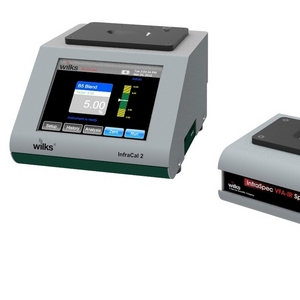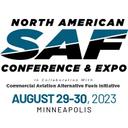ASTM D7861 validates use of portable biodiesel blend analyzers

March 24, 2015
BY Wilks - a Spectro Scientific Company
The recently published ASTM method D7861 for measuring biodiesel blend ratios enables users to take full advantage of the speed, convenience and durability provided by portable infrared analyzers, such as those offered by Wilks—a Spectro Scientific Company.
Traditional ASTM D7371 and EN 14078 methods for measuring biodiesel blends require the use of Fourier Transform Infrared spectrometers, equipment that is expensive and requires a level of technical knowledge to operate accurately. The new ASTM method D7861 certifies the use of portable filter-based infrared analyzers, such as the Wilks InfraSpec VFA-IR Spectrometer, that are rugged, compact and much better suited for use by on-site personnel in the environment where fuels are blended. The analyzers provide a fast, easy-to-use and inexpensive infrared method alternative for measuring biodiesel blend percentages.
The InfraSpec VFA-IR Spectrometer is a spectral range analyzer that employs a linear variable filter and a detector array covering the wavelength range of 5.4-10.8 μm (1850-925 cm-1), making it compliant with the instrument requirements of ASTM D7861. The spectrometer covers a spectral range that enables it to not only measure biodiesel in diesel, but also ethanol in gasoline and water in ethanol. The compact, portable instrument has a simplified PC interface that allows nontechnical personnel to make measurements on-site at the blending terminal, as well as at manufacturing facilities or laboratories where an ASTM method is required. The analyzer can measure the blend ratio in less than a minute and reads out directly in percent of biodiesel. Measurement range is 0 to 100 percent, with an accuracy of +/- 0.20 percent.
Advertisement
Advertisement
Wilks also offers the rugged, compact, fixed-filter InfraCal 2 ATR-B Biodiesel Blend Analyzer. Due to its single wavelength analysis, it is does not comply with D7861; results, however, are comparable with D7371, EN 14078 and the new D7861 method. The InfraCal 2 ATR-B analyzer is currently used worldwide by fuel blenders, distributors and regulators.
Advertisement
Advertisement
Related Stories
Clean Fuels Alliance America on June 10 announced the launch of the newly redesigned BQ-9000 website, delivering a streamlined and user-friendly experience that better showcases the value of biodiesel quality assurance.
Pertamina, a national energy company in Indonesia, has successfully condcuted static tests on sustainable aviation fuel (SAF) on CFM56-7B jet engines commonly used in commercial aircraft at GMF Aeroasia's Test Cell facility.
Iowa Central Community College on July 17 broke ground on a an expanded fuel testing lab that will benefit ethanol, biodiesel and other types of fuel. The new biofuel testing lab is expected to be complete in the fall of 2024.
NREL released its Assessment of BQ-9000 Biodiesel Properties for 2022. The report documents the quality of biodiesel from U.S. and Canadian-based producers that participate in the industry's voluntary quality assurance program, BQ-9000.
North American SAF Conference & Expo announces agenda
SAF Magazine and the Commercial Aviation Alternative Fuels Initiative (CAAFI) announced the preliminary agenda for the North American SAF Conference & Expo taking place Aug. 29-30 at the Minneapolis Convention Center in Minneapolis, Minnesota.
Upcoming Events










